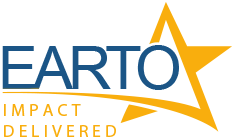21 / 02 / 2023
EARTO Inputs on RD&I for Civil Security for Society (Cluster 3) for Horizon Europe next Strategic Plan 2025-2027
In view of the preparation of the Horizon Europe next Strategic Plan 2025-2027, the EARTO Working Group Security and Defence Research (WGSD) would like to point out 6 recommendations to further increase the viability and impact of the Civil Security for Society programme. Those recommendations are based on the critical security context Europe is facing the last three yearsdue to, among other things, COVID-19, extreme summer wildfires Europe, severe floods in Germany, the Netherlands, Luxembourg and Belgium, continuous cyber-attacks on citizens, organisations and governments, ongoing migration and influx of refugees, and the return of a major war at the doorstep of Europe in Ukraine.
- Keep focusing HE Cluster 3 on RD&I for Civil Security for Society: Cluster 3 has great value as a dedicated program bringing together in one place civil security topics and a shared culture that civil security practitioners acknowledge and appreciate. Europe needs a long-term standalone civil security research and innovation programme to guarantee a continued impact of and investment in security focused topics and which contributes to a safer Europe. We strongly recommend further developing an ambitious single-entry programme for civil security under Horizon Europe Cluster 3.
- Alter entry barriers to calls under Cluster 3: We recommend changing the mandatory number of practitioners in each project from an eligibility criterion to a quality criterion. It will bring a much-welcomed increased and more diverse participation of practitioner organisations and better competition.
- Increase citizens’ involvement in RD&I security activities: We recommend including citizens and citizen NGOs in the Cluster 3 Security WP and to use, when relevant, a quality criterion for involving citizen-oriented organizations or NGOs.
- Expand Cluster 3 to capacity development topics: A Capability-Driven Approach would generally improve the involvement of the various stakeholders in civil security, including larger companies/industry, as the clustering around capabilities would result in a less fragmented (security) market. We recommend considering the expansion of Cluster 3 with capacity development topics, similar to the EDF and DEP.
- Better balance TRLs: In the current FP’s implementation, EARTO members noted discrepancies between the type of action (RA, IA, CSA) called for in the work programme versus the TRL level called for in the call text of said action, demonstrating a poor use of the TRLs as programming tool. We recommend to better balance (T)RLs to allow proper portfolio management and better use (T)RLs as a programming tool.
- Ensure the stability of HE Cluster 3 budget: We recommend 1) increasing the transparency of programming in terms of financial management, and 2) funding new initiatives of strategic importance with a dedicated budget rather than implementing complex transfers of financial contributions over different multi-annual WPs. In addition, we invite the EC to support the exploration of different technologies and approaches for a resilience-driven impact of the programme by funding several projects per topic.
The EARTO WGSD acknowledges the efforts made by the European Commission (EC) so far in the field of Security Research and Innovation, notably the strengthened involvement of practitioners in RD&I activities. To further maximise the Civil Security for Society programme’s success, it is of utmost importance to consider the particularities of the security research and innovation process at the European level, and to continue implementing appropriate supportive elements using lessons learned in this sector.
- Our detailed recommendations can be found in our full reaction here.
To complete our answer to the EC Consultation with further elaborated feedback on specific issues, please also see:
- EARTO answer to the EC Consultation on EU RD&I Framework Programmes
- EARTO Inputs on Healthcare R&I for Horizon Europe next Strategic Plan 2025-2027
- EARTO analysis on EARTO Members’ Participation in Horizon Europe until November 2022
- EARTO newly published paper on lump-sums
- EARTO Position Paper on Current Hurdles to Mobility of Researchers
- EARTO and other RD&I Stakeholders’ Joint Statement on the Model Grant Agreement’s Intellectual Property Provisions of the European Innovation Council

